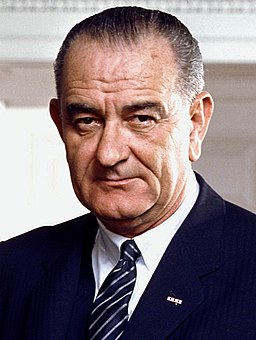📖 Presidential Profile
Comprehensive overview of leadership, policies, and historical significance
📋 Biography & Political Journey
Early Political Career and Rise to Power
Lyndon Baines Johnson entered politics in the 1930s as a **New Deal Democrat** and quickly rose through the ranks of the Democratic Party. His political acumen and ability to build coalitions made him one of the most effective **Senate Majority Leaders** in American history during the 1950s. Johnson’s mastery of legislative procedure and his famous “Johnson Treatment” – his intense personal lobbying style – helped him pass significant legislation even during the Eisenhower administration.
The Great Society and Civil Rights Legacy
Following Kennedy’s assassination, Johnson used his political skills to push through landmark legislation that Kennedy had struggled to pass. The **Civil Rights Act of 1964** and the **Voting Rights Act of 1965** represented the most significant advances in civil rights since Reconstruction. His Great Society programs included Medicare, Medicaid, federal education funding, and the War on Poverty – initiatives that fundamentally expanded the federal government’s role in American society.
Foreign Policy and Presidential Leadership
Johnson’s presidency was marked by significant foreign policy challenges, particularly in Southeast Asia and Latin America. His administration oversaw the **Dominican Republic intervention** in 1965 and maintained Cold War tensions with the Soviet Union. Despite his domestic successes, Johnson’s foreign policy decisions would come to define much of his presidential legacy and influence American politics for decades to come.
The Vietnam War Controversy
Johnson’s escalation of American involvement in Vietnam became the defining controversy of his presidency. The **Gulf of Tonkin Resolution** in 1964 gave Johnson broad war powers based on disputed naval incidents, leading to a massive buildup of American forces in Southeast Asia. By 1968, over 500,000 American troops were deployed in Vietnam, and growing anti-war protests had turned much of the public against the conflict. Johnson’s credibility was severely damaged by the **”credibility gap”** – the difference between official government statements about the war’s progress and the reality on the ground.
The Bathroom Politics Incident
Johnson was notorious for conducting business in unusual locations, including the White House bathroom. He would famously **continue meetings while using the toilet**, believing it gave him a psychological advantage over visitors who were uncomfortable with the situation. One particularly memorable incident involved a senator who tried to leave during such a meeting, only to have Johnson grab his arm and declare, **”Where are you going? I’m talking to you!”** This bizarre power play became legendary among Washington insiders and perfectly captured Johnson’s domineering personality.
Humor & Jokes
All The Way with LBJ
Johnson's campaign slogan was 'All the Way with LBJ.' Vietnam veterans might have preferred 'Part…
Read More →Greatest Wins
⚖️ Civil Rights Act of 1964
LBJ's landmark legislation outlawed discrimination based on race, color, religion, sex, or national origin, fundamentally…
Read More →Epic Fails
⚔️ Gulf of Tonkin Resolution and Vietnam War Escalation
LBJ's escalation of Vietnam based on questionable Gulf of Tonkin incident led to massive casualties…
Read More →